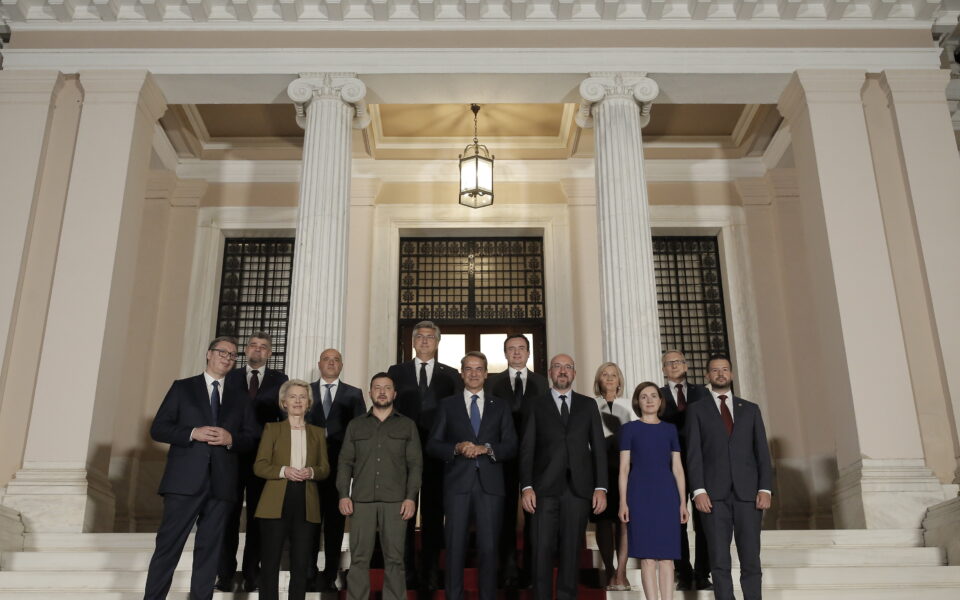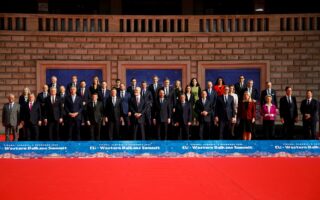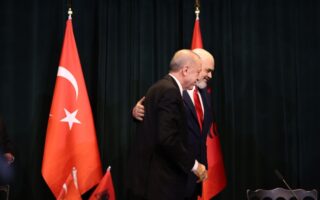The Athens meeting

The presence in Athens of leaders from most of the countries of the Western Balkans, as well as others from the wider region, strengthens Greece’s leading role in the area.
At a critical point in time, with the war in Ukraine still raging, some regional conflicts remain unresolved, and the frustration of some countries for the delays and ambiguities casting a shadow on their European prospects growing, the informal multilateral summit as well as the bilateral meetings that took place in Athens, had substance, but also remarkable symbolism.
Twenty years after the landmark Thessaloniki Declaration of the EU during a Greek presidency in the northern port city in June 2003, the meeting in Athens came to highlight once again the need for the faster integration of these countries into the European project, but also the pivotal role Greece plays in the political and economic field, as well as in that of stability and security, which was further strengthened five years ago with the Prespes Agreement.
At the same time, the cultivation of personal relationships, which some underestimate, is of particular value. The initiative of the Athens meeting came just a few days after the European Commission President Ursula von der Leyen was hosted by the Greek prime minister in Crete.
During the informal dinner in Athens, the leaders of the region, together with the head of the European Council, Charles Michel, and von der Leyen, discussed the steps towards EU membership, which Greece supports, not only in words but in deeds, provided of course that certain conditions are met.
Some countries still have a long way to go in terms of civil liberties, rule of law and transparency. In this context, the continued detention in Albania of the newly elected ethnic-Greek mayor of Himare, Fredi Beleri, which has angered Athens and been criticized by European officials, is not an encouraging sign of behavior from Tirana. It resulted in Albanian Prime Minister Edi Rama not being invited to Athens.
Greece is not only the oldest member of both NATO and the EU in the region, but in today’s unstable energy environment it is also developing into a critical hub with wider strategic ramifications, which is confirmed by the war in Ukraine.
In joint steps with Brussels and Washington, as well as with careful moves that make it part of solutions and not problems, Greece is seen as a reliable ally in an unstable region.
The meeting in Athens highlighted the strategic value of Greece as an advocate of stability, economic cooperation and energy independence, as well as the main advocate of democracy in Southeast Europe.
At the same time, the country took advantage of the opportunity – through the presence of the Ukrainian president in Athens – to highlight internationally and in a resounding way its opposition to revisionism and to a policies of disputing territorial sovereignty or forceful border changes.





